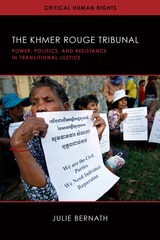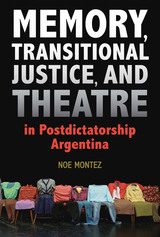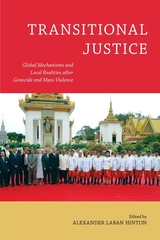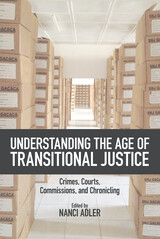
Children are increasingly a focus of international and national courts and truth commissions. Their participation, including through testimony that bears witness to their experiences, demonstrates their critical role in truth, justice, and reconciliation processes. If children are to engage, however, their rights must be respected.
This book includes analysis of the recent involvement of children in transitional justice processes in Liberia, Peru, Sierra Leone, and South Africa. It also explores key areas of current debates among legal scholars and child rights advocates, such as international criminal responsibility, traditional and restorative justice, reparations, psychosocial support for child witnesses, and links between education and reconciliation.
The book emphasizes how children must be engaged during post-conflict transition. If children are excluded, they may become vulnerable to a continuing cycle of violence, affecting future generations. In contrast, through active involvement in transitions, children and adolescents can be the catalysts for justice, reconciliation, and peace-building within their own families and communities.

Here, Julie Bernath takes a different tack, deliberately decentering the trials in an effort to understand the ECCC in its particular context—and, by extension, the degree to which notions of transitional justice generally must be understood in particular social, cultural, and political contexts. She focuses on “sites of resistance” to the ECCC, including not only members of the elite political class but also citizens who do not, for a variety of tangled reasons, participate in the tribunal—and even resistance from victims of the regime and participants in the trials. Bernath demonstrates that the ECCC both shapes and is shaped by long-term contestation over Cambodia’s social, economic, and political transformations, and thereby argues that transitional justice must be understood locally rather than as a homogenous good that can be implanted by international actors.

Montez explores how the sociohistorical phenomenon of the Teatroxlaidentidad—an annual showcase staged with the support of Argentina’s Grandmothers of the Plaza de Mayo—acted as a vehicle for drawing attention to the hundreds of children kidnapped from their families during the dictatorship and looks at why the memory narratives regarding the Malvinas Islands (also known as the Falklands) range from ideological appropriations of the islands, to absurdist commentaries about the failed war that signaled the dictatorship’s end, to the islands’ heavily contested status today.
Memory, Transitional Justice, and Theatre in Postdictatorship Argentina explores the vibrant role of theatrical engagement in postdictatorship Argentina, analyzes plays by artists long neglected in English-language articles and books, and explores the practicalities of staging performances in Latin America.


READERS
Browse our collection.
PUBLISHERS
See BiblioVault's publisher services.
STUDENT SERVICES
Files for college accessibility offices.
UChicago Accessibility Resources
home | accessibility | search | about | contact us
BiblioVault ® 2001 - 2024
The University of Chicago Press









